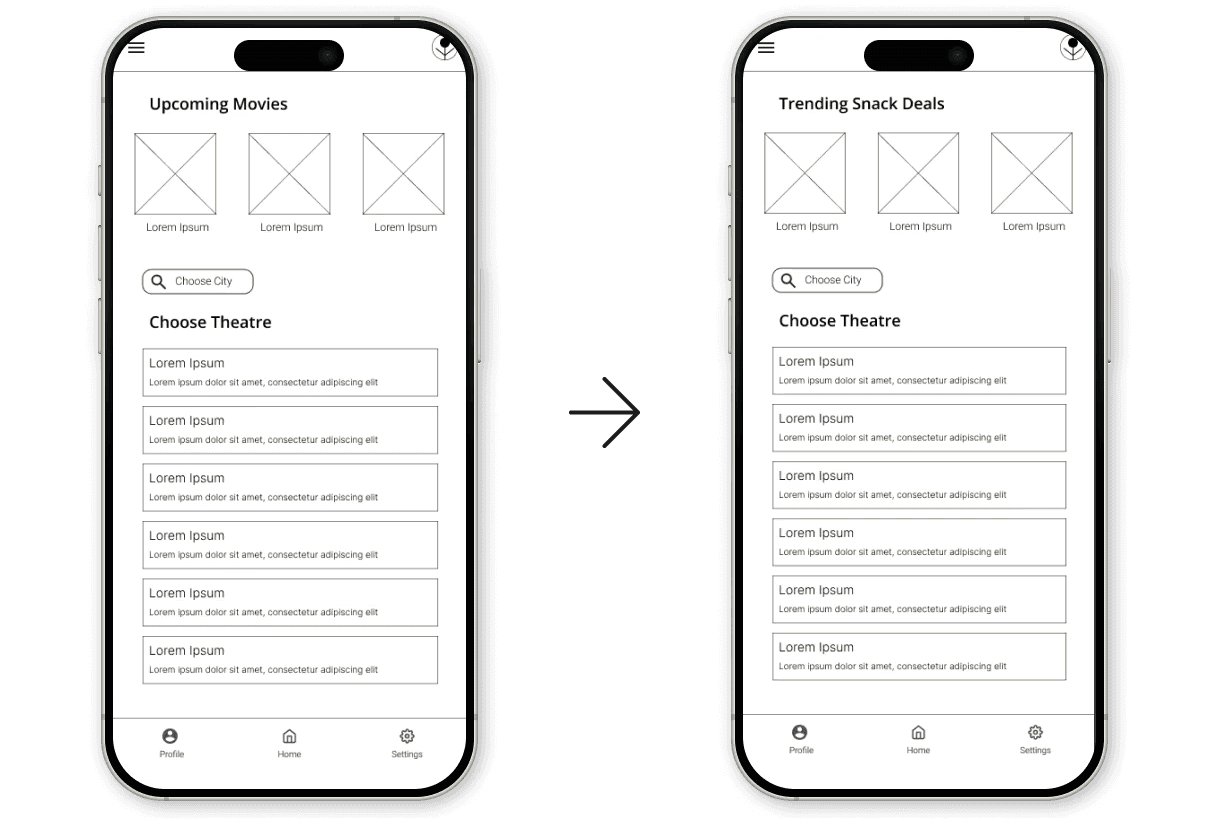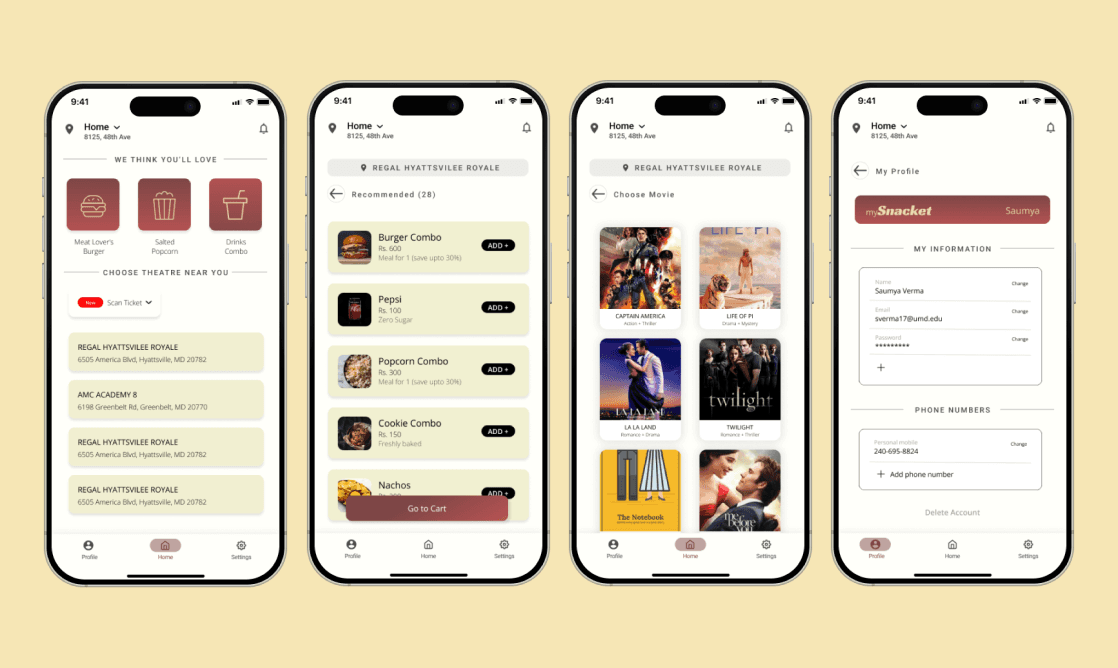
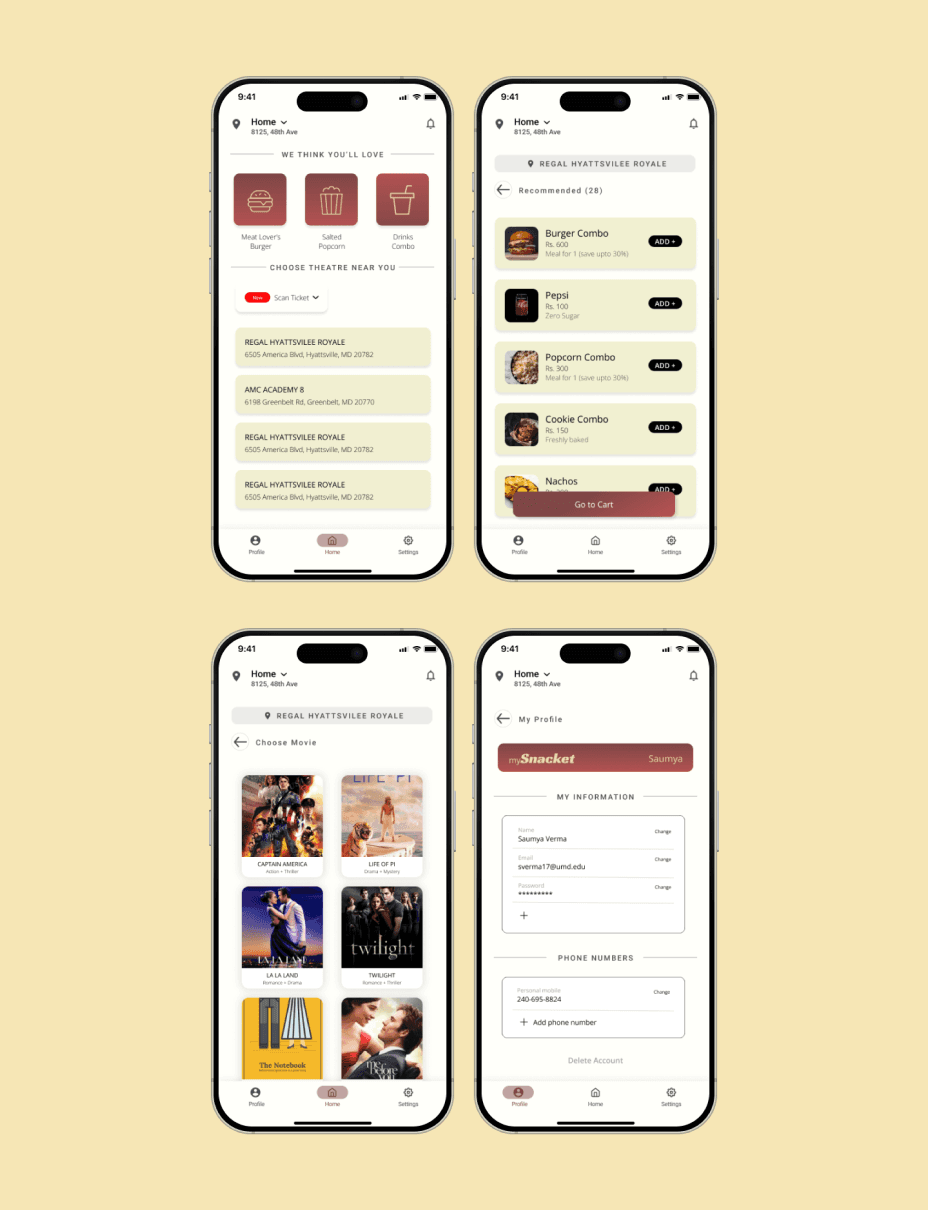
Smart Story Suite
CLIENT
CLIENT
Digital Engagement Lab
Digital Engagement Lab
TOOLS
TOOLS
Figma, Google Docs
Figma, Google Docs
TIMELINE
TIMELINE
Nov 2024 -Aug 2025
Nov 2024 -Aug 2025
How can we increase the likelihood of users spending more time engaging with news content?
How can we increase the likelihood of users spending more time engaging with news content?
Moviegoers often face the inconvenience of waiting in long queues to purchase snacks, disrupting their theatre experience. Snacket, a snack-ordering app, aims to enhance the movie-watching experience by allowing users to pre-order snacks at competitive prices and have them delivered directly to their theatre seats. The challenge is to design an intuitive and seamless user experience that ensures quick and hassle-free snack pre-ordering, while addressing user concerns such as snack customization, delivery timing, and payment security.
Moviegoers often face the inconvenience of waiting in long queues to purchase snacks, disrupting their theatre experience. Snacket, a snack-ordering app, aims to enhance the movie-watching experience by allowing users to pre-order snacks at competitive prices and have them delivered directly to their theatre seats. The challenge is to design an intuitive and seamless user experience that ensures quick and hassle-free snack pre-ordering, while addressing user concerns such as snack customization, delivery timing, and payment security.
SOLUTION
SOLUTION
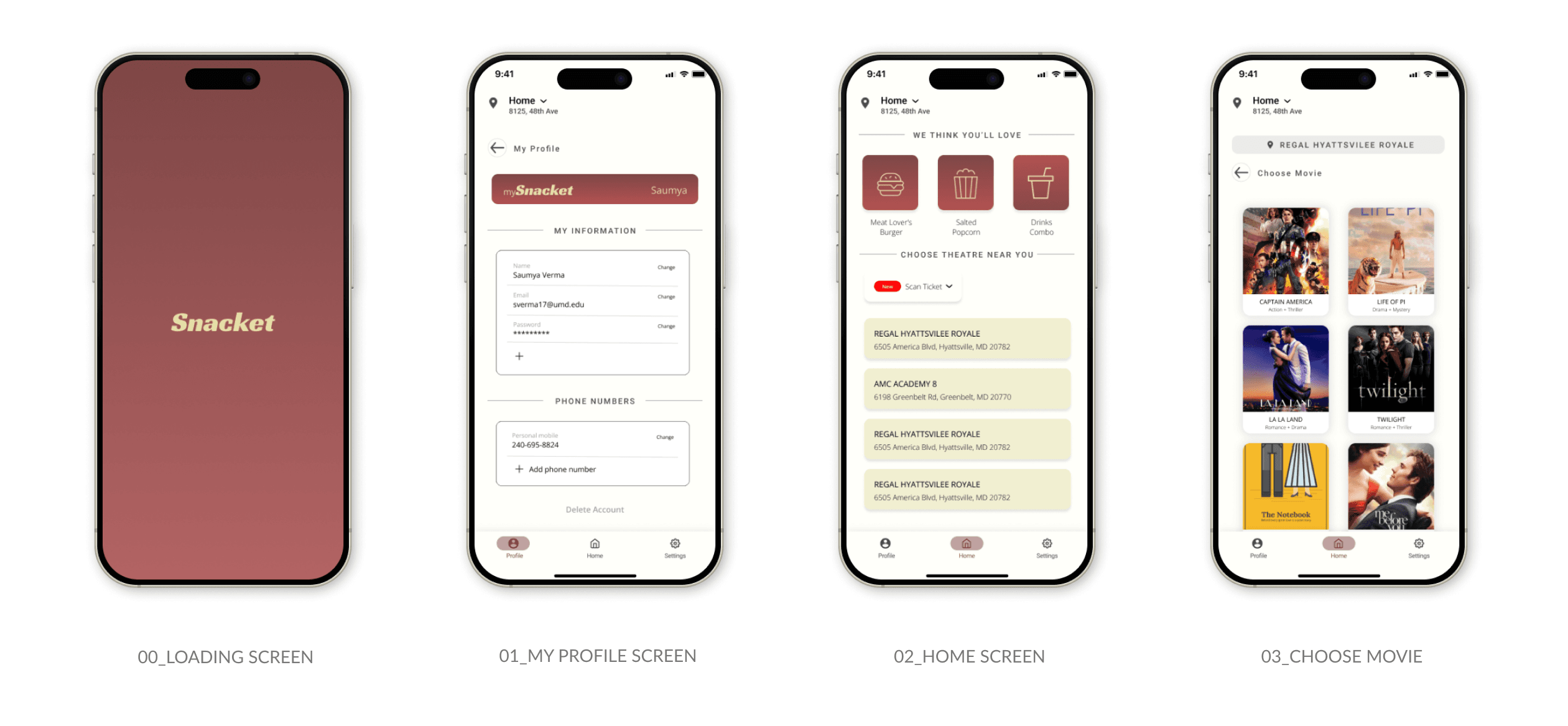

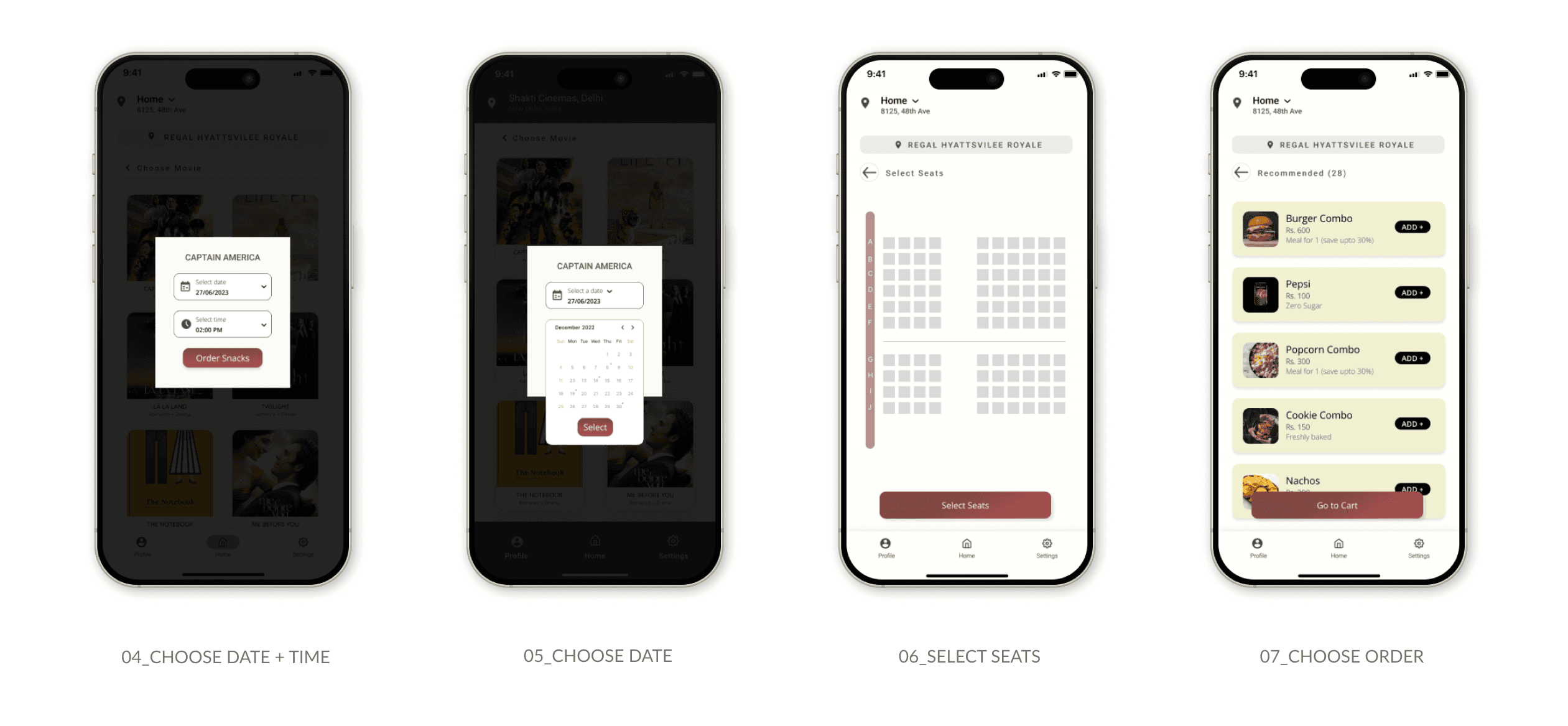

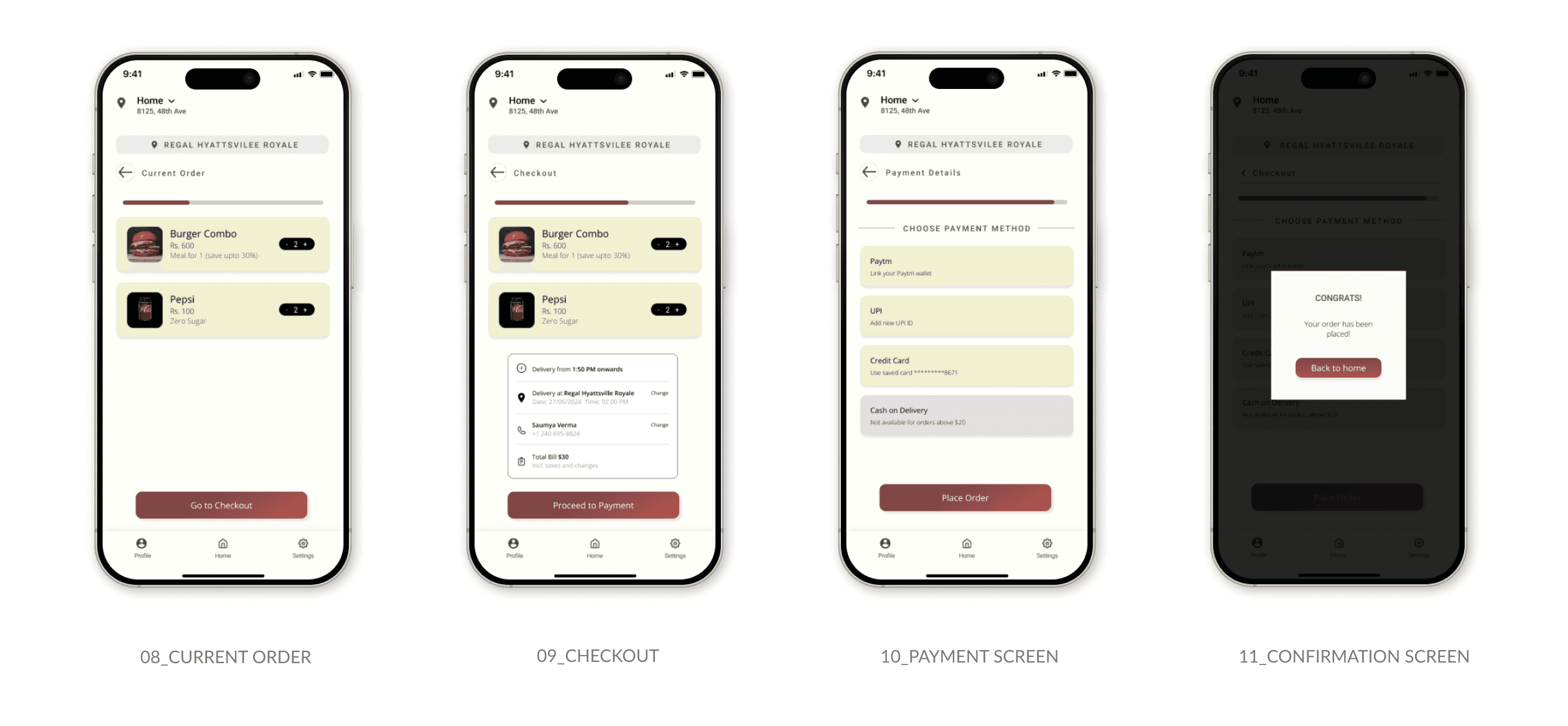

PROJECT DETAILS
PROJECT DETAILS
What is Smart Story Suite?
What is Smart Story Suite?
What is Smart Story Suite?
Since 2005, Professor Ronald Yaros has worked to develop a new model for digital engagement. The unique model combines ten user and content variables and is incorporated into a “smart story suite” so users can select their news narrative. The model seeks to increase the probability that users will spend more time with news.
Since 2005, Professor Ronald Yaros has worked to develop a new model for digital engagement. The unique model combines ten user and content variables and is incorporated into a “smart story suite” so users can select their news narrative. The model seeks to increase the probability that users will spend more time with news.
PRELIMINARY WIREFRAMES
PRELIMINARY WIREFRAMES
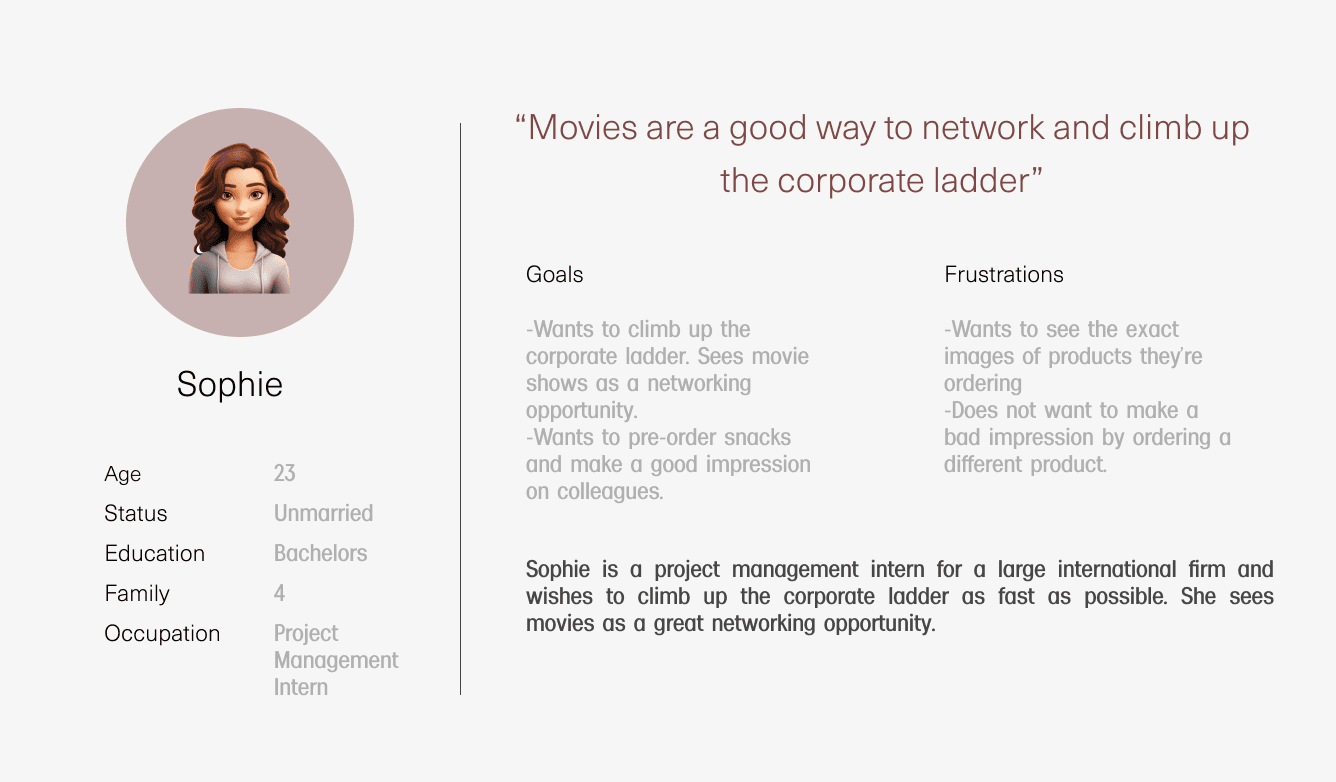

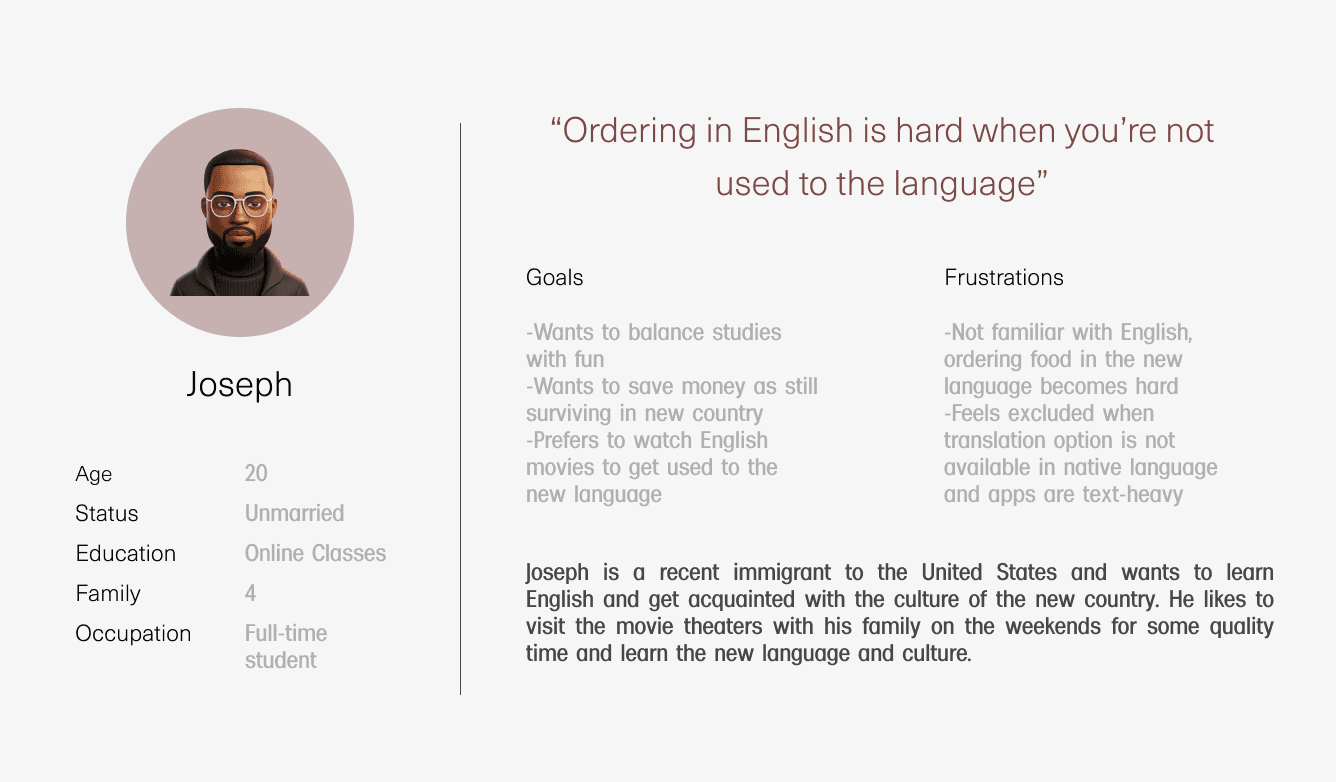

TESTING INITIAL WIREFRAMES
TESTING INITIAL WIREFRAMES
Competitors overlook real-time tracking, which Snacket addresses with fast, personalized service and live order updates.
Competitors overlook real-time tracking, which Snacket addresses with fast, personalized service and live order updates.
I examined AMC Theatres, BookMyShow, Zomato, and Swiggy to map the current landscape of snack ordering within the entertainment and food delivery sectors. AMC Theatres offers in-theatre ordering but its mobile interface lacks intuitiveness. Zomato and Swiggy provide robust food delivery services with excellent UX and real-time tracking, but they do not cater specifically to the unique needs of moviegoers. A key insight from this analysis is the opportunity to create a dedicated, cinema-focused ordering platform that leverages the user-friendly interfaces of leading food apps.
I examined AMC Theatres, BookMyShow, Zomato, and Swiggy to map the current landscape of snack ordering within the entertainment and food delivery sectors. AMC Theatres offers in-theatre ordering but its mobile interface lacks intuitiveness. Zomato and Swiggy provide robust food delivery services with excellent UX and real-time tracking, but they do not cater specifically to the unique needs of moviegoers. A key insight from this analysis is the opportunity to create a dedicated, cinema-focused ordering platform that leverages the user-friendly interfaces of leading food apps.
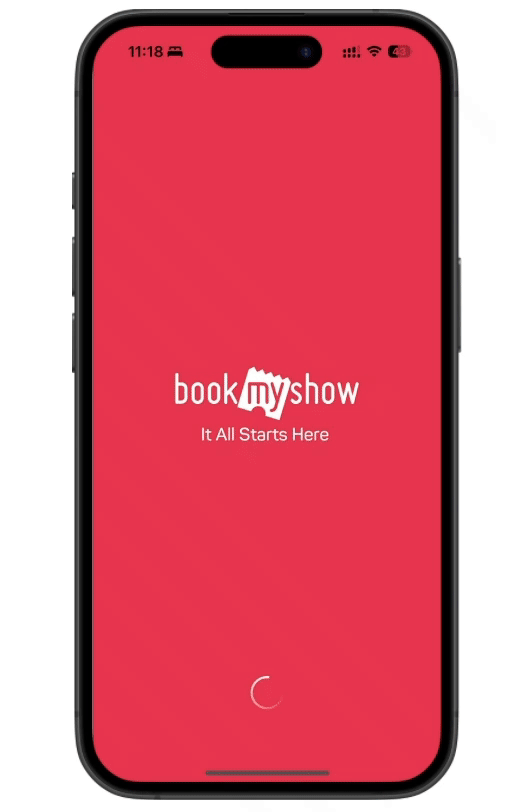

TASK FLOWS
TASK FLOWS


Flow 1: User Journey for Selecting Theatre, Movie, and Showtime
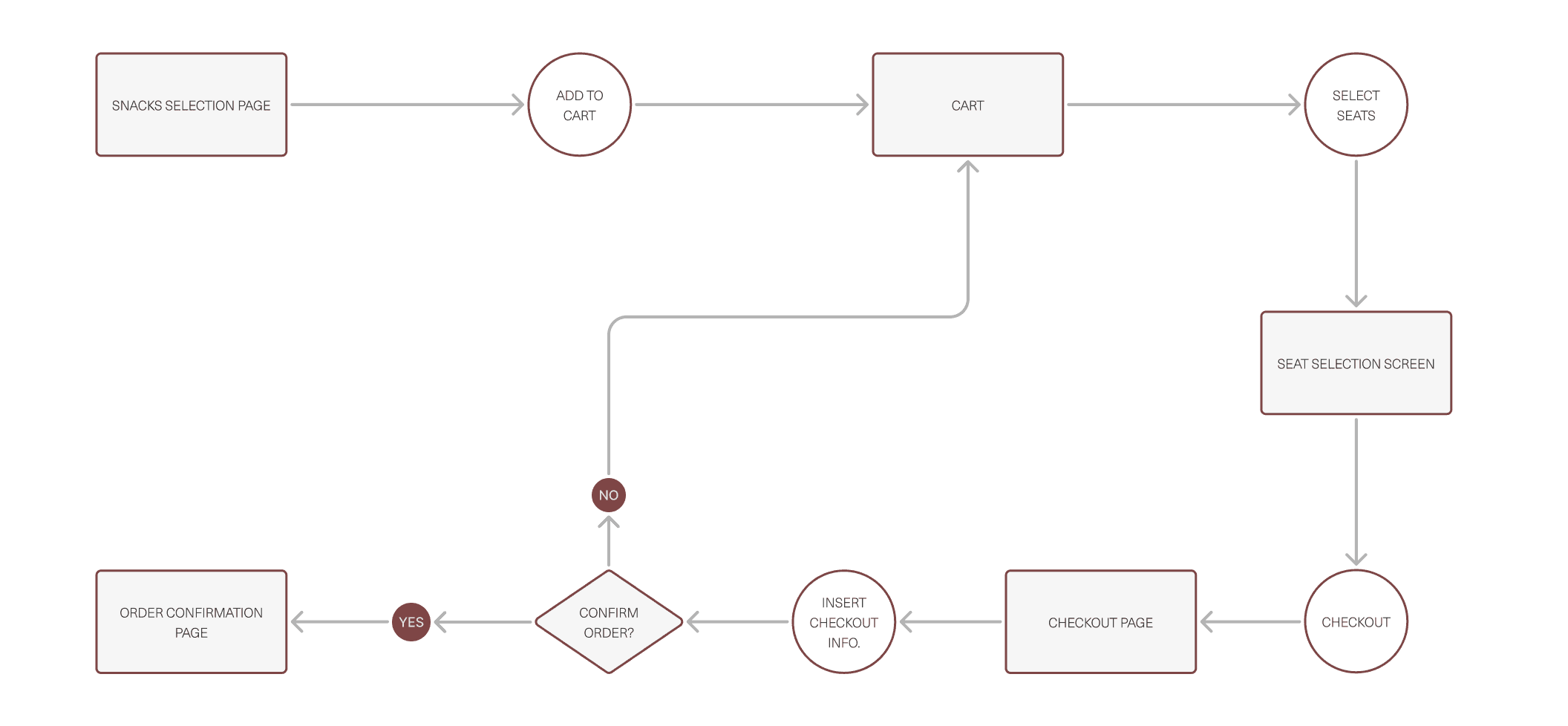

Flow 2: User Journey for Snacks, Seats, and Checkout Process
PROTOTYPING
PROTOTYPING
I created low fidelity, medium fidelity, and high fidelity iterations of a game that might persuade students to take breaks from their work. With each iteration, we conducted 5 usability tests with our target users to gather feedback. We then incorporated that feedback into the next round of prototyping.
I created low fidelity, medium fidelity, and high fidelity iterations of a game that might persuade students to take breaks from their work. With each iteration, we conducted 5 usability tests with our target users to gather feedback. We then incorporated that feedback into the next round of prototyping.
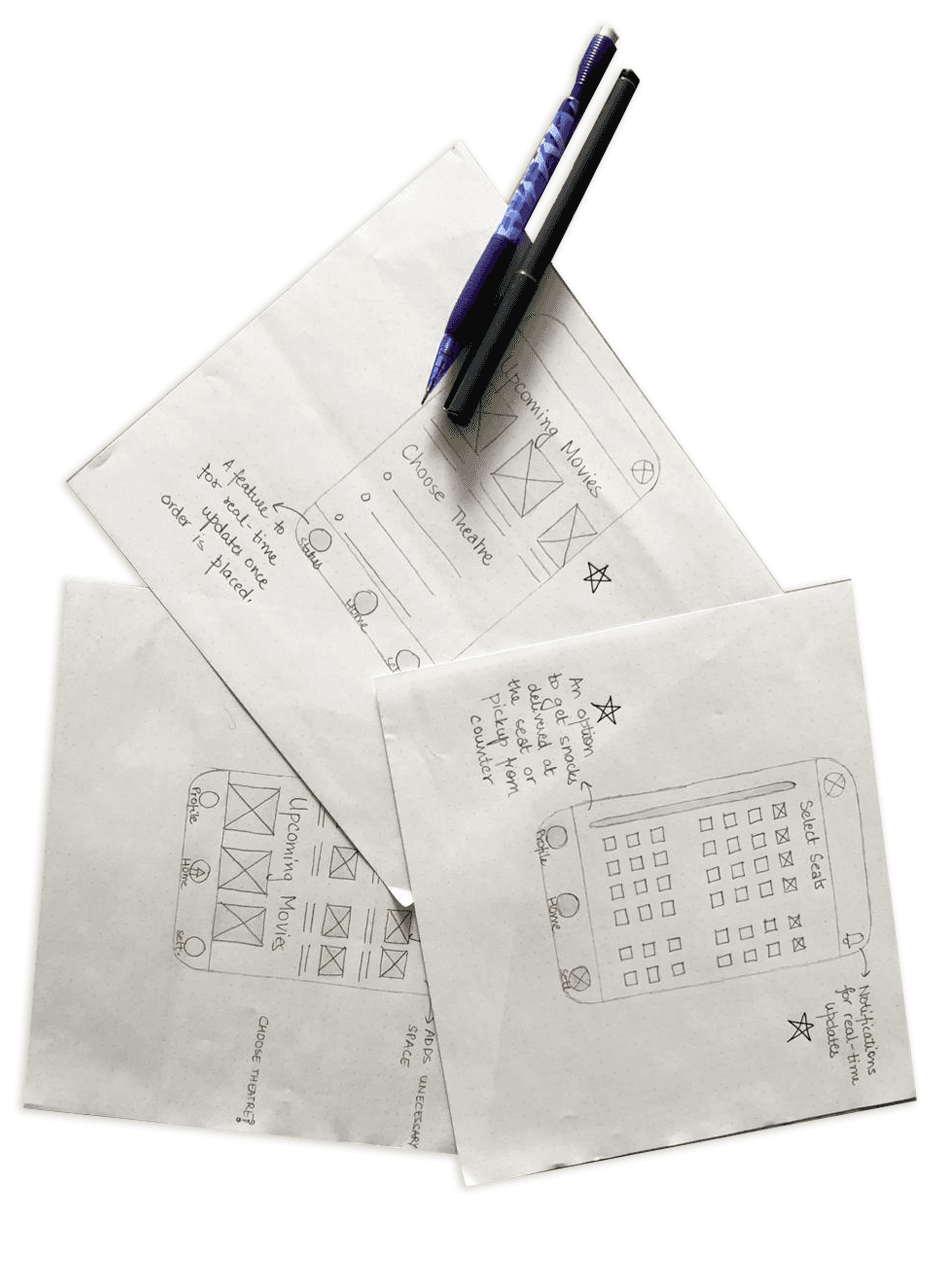

USABILITY TEST
USABILITY TEST
Uncovering insights through a non-moderated usability study with five participants
Uncovering insights through a non-moderated usability study with five participants
I conducted a non-moderated usability study with five participants. The study focused on three main aspects of the system – profile creation, movie selection, snack selection and ordering, and seat delivery. Participants were asked to complete benchmark tasks while interacting with the prototype, providing feedback through the think-aloud method.
I conducted a non-moderated usability study with five participants. The study focused on three main aspects of the system – profile creation, movie selection, snack selection and ordering, and seat delivery. Participants were asked to complete benchmark tasks while interacting with the prototype, providing feedback through the think-aloud method.
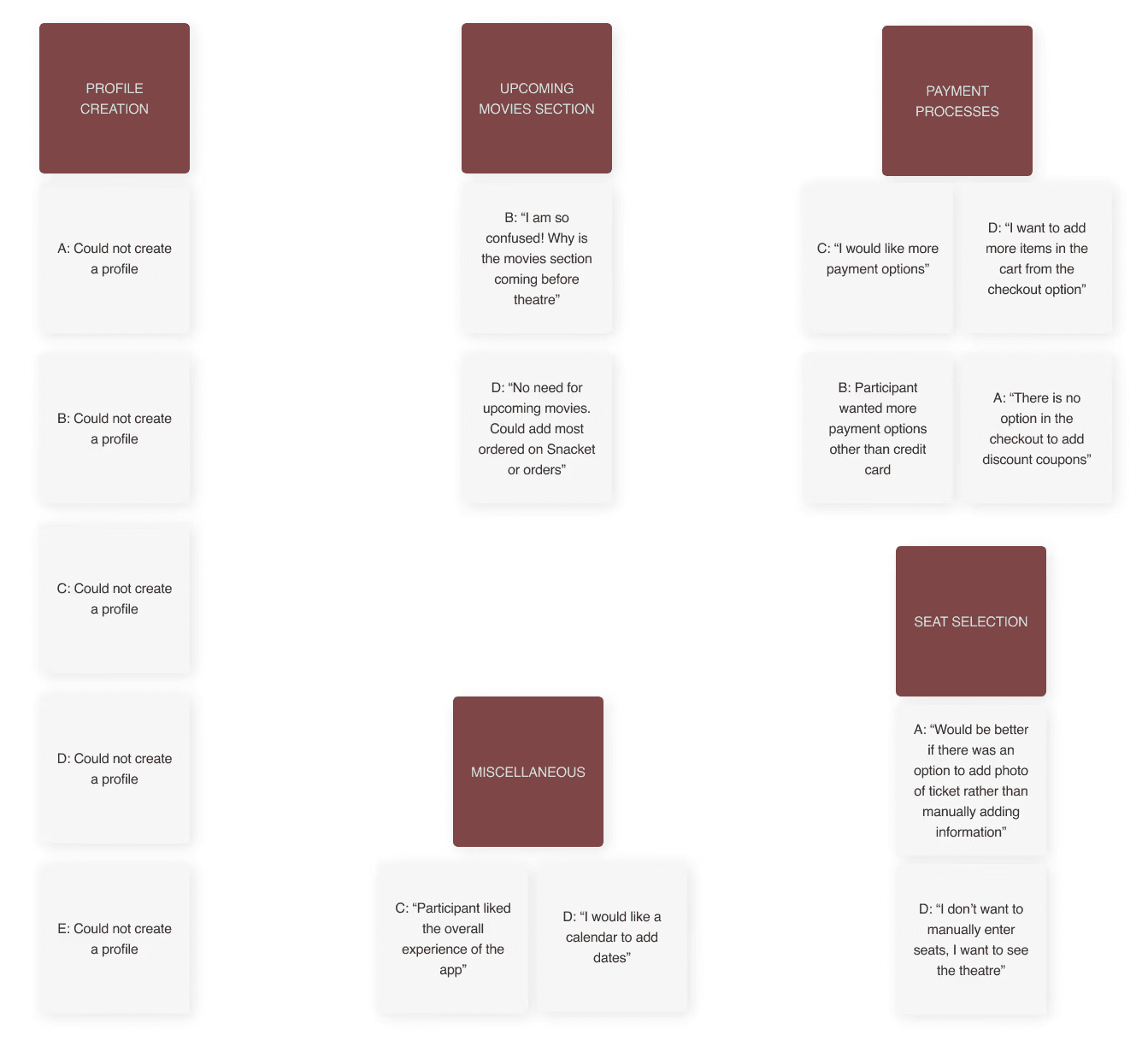

INSIGHTS AND ITERATIONS
1
1
Users need another way to make a profile.
2
2
Users prefer alternatives to manually adding seat numbers.
3
3
Users want alternative to the upcoming movies option.
4
Users find the adding snacks option easy.
5
Users need more payment options.
4
Users find the adding snacks option easy.
5
Users need more payment options.
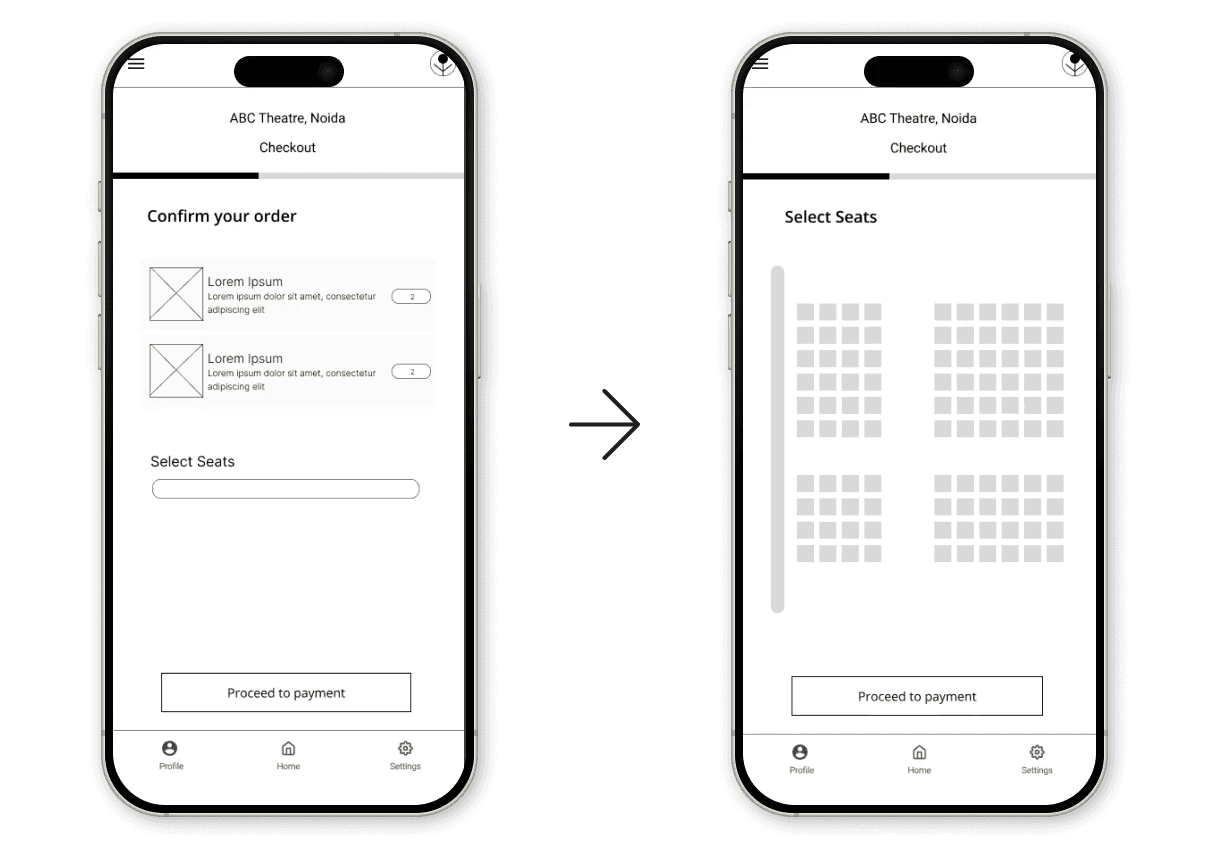

Visual Seat Selection
Visual Seat Selection
To address feedback from the usability study, I replaced the manual seat number entry with a visual, interactive 2D theater seating map. This feature allows users to easily select their seat by clicking on a representation of the theater layout, making the process faster and more intuitive.
To address feedback from the usability study, I replaced the manual seat number entry with a visual, interactive 2D theater seating map. This feature allows users to easily select their seat by clicking on a representation of the theater layout, making the process faster and more intuitive.
Removing the Upcoming Movies Section
Removing the Upcoming Movies Section
To address user confusion, I replaced the upcoming movies carousel with a section highlighting trending snack deals. Users felt the carousel was misleading for a snack ordering app, as it made them unsure if they needed to select their current movie. The new feature aligns better with user expectations and encourages snack purchases, improving both clarity and sales potential.
To address user confusion, I replaced the upcoming movies carousel with a section highlighting trending snack deals. Users felt the carousel was misleading for a snack ordering app, as it made them unsure if they needed to select their current movie. The new feature aligns better with user expectations and encourages snack purchases, improving both clarity and sales potential.
